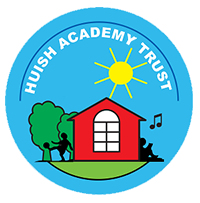Maths at Milford Junior School

At Milford, we aim to develop each child’s confidence in mathematics and believe all children will become resilient, fluent mathematicians with an ability to tackle problem solving. Our pupils have the opportunity to explore concepts and build on prior learning, taking small steps to achieve greater understanding along their mathematical learning journey. We endeavour to provide a Mastery Curriculum to support all children in reaching their full potential in preparation for secondary school and adult life. Our pupils leave Milford Junior School with mathematical confidence, a joy of learning and are well-equipped for the challenges that lie ahead.

Our Maths Curriculum
As a school we predominately embed the Mastery approach using the White Rose Maths programme. More recently, to help ensure quality first teaching, we have reviewed our long-term scheme of work to include the Ready to Progress criteria and ensure it meets the needs of our children. This overview will be adapted according to the ability of the children.
Within the Mastery approach, children deepen their understanding of mathematical concepts becoming more confident and competent and ready to face new challenges. In doing this, children are supported to develop conceptual understanding by using models, pictorials and concrete resources so that they understand the abstract mathematical concepts that they are learning. It is important that pupils are secure in their knowledge and understanding across all mathematical areas and show resilience in their learning.
It is our belief that everyone can master maths at their own level and the term is never used as a descriptor for those classed as ‘more able’ mathematicians. Children are given timely and effective intervention that may be within the lesson or more formally over a matter of weeks. This should help to close any gaps within the children’s knowledge.Teaching and learning
Mathematics is taught through three main strands: Varied Fluency, Reasoning and Problem Solving. Our teachers ensure effective learning through the use of the Concrete/Pictorial representation/Abstract approach. Stem sentences are used to aid understanding and retention of key knowledge and feedback journals are used to give children support that aids progress.
Wherever possible, mathematics draws upon real-life situations, and, according to their age and ability, the children will cover calculation strategies (including times tables), money, fractions, percentages, measure, geometry (shape, space and position), statistics (handling data).
Basic skills in mathematics are taught as soon as the children arrive in school and are revisited and developed throughout their time with us. In these sessions, strategies are revisited and children practice making connections between their known facts and mental calculations. The aim is for the children to be able to make calculations quickly and accurately, using logical methods to arrive at solutions to problems.
Home Learning
We believe that home learning can support and consolidate maths learning. Home learning is used as an opportunity for children to ‘revisit’ previously taught concepts. To embed the retention of learning, teachers leave a gap between point of teaching and the time children practise at home.
TTROCKSTARS
Every pupil has a #TTRockStars account to use at home and in school. Times Tables Rock Stars is a carefully sequenced programme of daily times tables practice. Children can practice in the 'Garage', earn their rock status in the 'Studio' or compete against their peers in the 'Arena'. Pupils can even challenge their peers to a battle in 'Rockslam' or play against children from all around the world in 'Festival' mode! If you do not have your child's log-in details, please speak to your child's class teacher.


